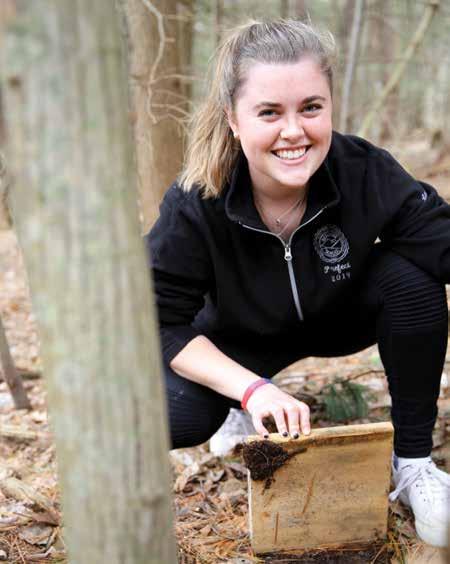I see where the growth is, where the development is, and what’s happening immediately in and around the area.
What has been the proudest moment of your career so far? We have a factory store concept that is centered around the community. These community stores are meant to help elevate a neighborhood and bring economic viability, and also be a point of distribution for us. We’re hiring from the community, and these stores make such a local impact. I’m proud to be a part of that work. How does your architecture degree and experience serve you now? No one’s able to pull the wool over my eyes. In terms of site selection, I’m able to read a set of drawings or documents, and I don’t need to wait to get input from the design team to understand functionality and physical design elements. I can respond in real time to potential opportunities. What are the challenges that women and women of color are facing in your field? The pay equity piece is very important. Women need to know our value and test our value in the marketplace so we can assess the appropriate level of compensation we should be getting. It’s taboo, and people don’t want to talk about it. But we need to periodically test and understand where that bar is. Another challenge is the dual edge of visibility. Visually, I stand out. If I go to a real estate conference, there are very, very, very few people of color. I can’t hide. So that visibility can be a challenge, especially when it comes to being critical. I have to always be cognizant of my actions and what that feedback could mean. On the flip side, it’s making sure that my opinions and ideas are accepted and heard, and not just because they are validated by someone else.
How can women advance in leadership roles in large companies like Nike? Women need to understand the difference between mentorship and sponsorship. Sponsorship is having that sponsor who is advocating for you and speaking for you behind closed doors so that you are in the leadership pipeline. That’s how the leadership pipeline in companies is formed. It’s, ‘I know this person’s work and that person should probably be on the path to assume X role.’ If there’s no one advocating for you, you can do a great job, and it won’t necessarily get noticed. That’s the best way to ascend in leadership. It can be difficult at times to find or connect with the right person, but that’s the hard work that’s going to ultimately pay off in the long run. How did your Berkshire experience impact you? Berkshire is where my serious commitment to sports began. That requirement to play sports and be active is something that I continue to this day. Berkshire also gave me early exposure to different people and different cultures. On the other side, I experienced people meeting me. There were several instances where I was the first black person that some people had ever met, which I felt was kind of wild. Being respectful of others, understanding where people are coming from, and having that exposure early on was definitely helpful in how I live my life. What makes you the proudest of your sister, Jillian Hooper Joseph ’97? She’s one of the smartest people I’ve ever met. She has that presence. When she walks into a room, you know that someone special is in your midst. She’s an amazing public speaker; she’s gotten standing ovations for her introductions. She’s just been a fantastic role model for me to follow. Summer 2019
45



